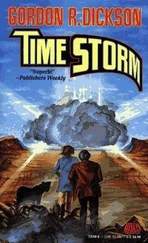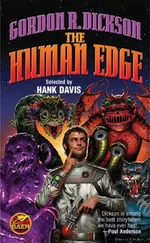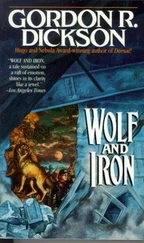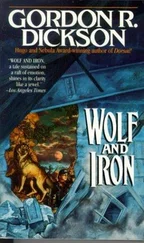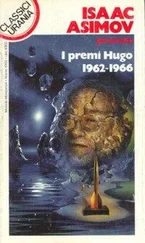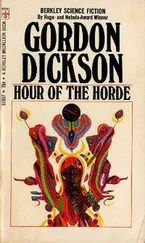Gordon Dickson - Wolfling
Здесь есть возможность читать онлайн «Gordon Dickson - Wolfling» весь текст электронной книги совершенно бесплатно (целиком полную версию без сокращений). В некоторых случаях можно слушать аудио, скачать через торрент в формате fb2 и присутствует краткое содержание. Год выпуска: 1969, Издательство: Dell, Жанр: Фантастика и фэнтези, на английском языке. Описание произведения, (предисловие) а так же отзывы посетителей доступны на портале библиотеки ЛибКат.
- Название:Wolfling
- Автор:
- Издательство:Dell
- Жанр:
- Год:1969
- ISBN:нет данных
- Рейтинг книги:5 / 5. Голосов: 1
-
Избранное:Добавить в избранное
- Отзывы:
-
Ваша оценка:
- 100
- 1
- 2
- 3
- 4
- 5
Wolfling: краткое содержание, описание и аннотация
Предлагаем к чтению аннотацию, описание, краткое содержание или предисловие (зависит от того, что написал сам автор книги «Wolfling»). Если вы не нашли необходимую информацию о книге — напишите в комментариях, мы постараемся отыскать её.
Wolfling — читать онлайн бесплатно полную книгу (весь текст) целиком
Ниже представлен текст книги, разбитый по страницам. Система сохранения места последней прочитанной страницы, позволяет с удобством читать онлайн бесплатно книгу «Wolfling», без необходимости каждый раз заново искать на чём Вы остановились. Поставьте закладку, и сможете в любой момент перейти на страницу, на которой закончили чтение.
Интервал:
Закладка:
She was, he thought, reassured.
The party celebrating Slothiel’s sponsorhip of him for adoption, it turned out, was to be held in just under three weeks. Jim spent the time learning Starkien ways and warfare from Adok, putting in the few nominal appearances that duty required of him with that military caste and studying in the Files section to which Adok had introduced him underground.
In between times, he moved about the servants’ areas underground, observing any hand signal that was made and committing it to memory. In his spare time he tried to catalog and arrange these signals into some kind of coherent form that would allow him to begin to interpret them.
Two things were in his favor. In the first place, as an anthropologist, he was aware that any sign language derived from primitive, common basics in human nature. As one of the early explorers had said about his experiences in that regard while living with the North American Eskimo, you did not need anyone to teach you the basic signs of communication. You already knew them. The threatening gesture; the come-here gesture; the I-am-hungry gestures, such as pointing to the mouth and then rubbing the stomach—all these, and a large handful more, came instinctively to the mind of any man trying to communicate by hand or body movements.
In the second place, a language mainly of hand signals was necessarily limited. The messages conveyed by such a language necessarily had to depend a great deal upon the context in which the gestures were made. Therefore, the same signal was bound to reappear frequently before any observer watching over a period of time.
Jim therefore assumed success. And, in fact, it was only a little more than two weeks before he identified the recognition signal—that hand movement that was equivalent to a greeting and a recognition signal among users of the Silent Language. It consisted of nothing more than the tapping of the right thumbtip against the side of the adjacent forefinger. From that point on, the various signals began to reveal their meaning to him rapidly.
His search in the Files to discover whether an expedition from the Throne World—or, for that matter, from one of the then-existing Colony Worlds—had set out in the direction of the solar system containing Earth was meeting with no similar success. Perhaps records of such an expedition were there in the Files. Perhaps they were not. The point was, the records that Jim himself had to examine to eliminate all the possibilities were too multitudinous. The job was equivalent, in fact, to his reading through the entire contents of a small public library.
“And besides,” said Adok when Jim finally one day mentioned this problem to the Starkien, “you have to remember that you could go all through the records you’re permitted to see and still not know of such an expedition, even if record of it was there.”
They had been strolling through the underground park. Jim stopped suddenly and turned to face Adok, who automatically stopped also and turned to face Jim.
“What’s this?” demanded Jim. “You said something about my being permitted to see only part of the records?”
“Forgive me, Jim,” said Adok. “I don’t know, of course, if any of the records of such trips are secret. But the point is, how can you be sure some are not? And further, how can you be sure that if some are secret, the one you’re looking for is not among them?”
“I can’t. Naturally,” said Jim. “What bothers me is that I never stopped to think that any of the history of this planet might not be fully available.” He thought for a second. “Who gets to see secret information in the Files, anyway?”
“Why,” answered Adok with the faint note of surprise in his voice that was the ultimate in his reaction that way, “all the High-born see all the information, of course. In fact, since you are as free to move around above ground as below, all you need to do is to go to one of the learning centers for the High-born children—”
He broke off suddenly.
“No,” he said in a lower tone of voice. “I was forgetting. You can go to one of the learning centers, of course. But it won’t do you any good.”
“You mean the High-born won’t let me use the learning center?” asked Jim. He was watching Adok closely. Nothing on the Throne World could be taken for granted, even the transparent honesty in someone like Adok. If Adok was going to tell him that there was some kind of a rule against his using the learning center, it would be only the second outright prohibition he had encountered above ground on this singularly prohibitionless planet. The first, of course, being the rule against anyone approaching the Emperor without being directly summoned. But Adok was shaking his head.
“No,” Adok said. “I don’t think anyone would stop you. It’s just that you wouldn’t be able to use the reading machines above ground. You see, they’re set for use by the young High-born, and they read too fast for the ordinary men to follow.”
“You’ve seen me read,” said Jim. “They read faster than that?”
“Much faster,” said Adok. He shook his head again. “Much, much faster.”
“That’s all right,” said Jim. “Take me to one of these learning centers.”
Adok did not shrug—in fact, it was a question whether his shoulders were not too heavily muscled for such a gesture, even if his nature permitted it. Instantly they were above ground in a large structure like an enormous loggia—or rather, like one of the Grecian temples, consisting of roof and pillars and floor, but without any obvious outside walls. Through the nearby pillars green lawn and blue sky showed. About on the floor, scattered at intervals, seated or curled up on hassocks, were children obviously of the High-born, and of all ages. Each of them was gazing at a screen that floated at an angle in the air before them, and moved about to stay before them as they altered position on the hassock, always maintaining roughly the same forty-five-degree reading angle Jim had found in the carrels of the Files below ground.
None of the children, even the few who paused to glance at Jim and Adok, paid more than a second’s attention to the newcomers. Clearly, Jim decided, the fact that neither he nor Adok was a High-born rendered them for practical purposes invisible, unless needed, by these High-born children.
Jim moved over to stand closely behind one of them—a boy as tall as Jim himself, though extremely thin of limb and with the face of a ten- or twelve-year-old. The same running line of symbols to which Jim had grown accustomed below ground was running in front of the youngster. Jim looked at that line.
It was blurring by at a tremendous rate. Jim frowned, staring at it, trying to match his perception to its movement, to change it from a streak of spiky, wavy blackness to readable symbols.
Astonishingly, he could not.
He felt a sudden shock through him internally of something very like anger. He had never yet found anything that anyone else could do that he was not capable of matching within the limits of his own physical resources. Moreover, he was perfectly sure that the problem was not with his vision. His eyes should be as capable of resolving the blurred line into symbols as any High-born eye. The problem was in his brain, which was refusing to accept the readable information at the rate at which it was being offered.
He made a grim internal effort. Around him, glimpses of sunlight and lawn, pillars, ceiling, floor—even the boy himself, unheedingly reading—were blanked out. Jim’s concentration focused down upon the line of reading—the line alone. The pressure of his efforts to resolve it was like a cord twisted tight around the temples of his head. Tighter, and tighter…
Almost, for a second, he made it. For a second it seemed as if the line was beginning to break apart into readable symbols, and he gathered that the text had something to do with the organization of the Starkiens themselves. Then his efforts broke—out of sheer physical inability of his body to sustain it any longer. He swayed a little, and vision of the rest of the universe, including pillars, walls, and ceiling, opened out about him once more.
Читать дальшеИнтервал:
Закладка:
Похожие книги на «Wolfling»
Представляем Вашему вниманию похожие книги на «Wolfling» списком для выбора. Мы отобрали схожую по названию и смыслу литературу в надежде предоставить читателям больше вариантов отыскать новые, интересные, ещё непрочитанные произведения.
Обсуждение, отзывы о книге «Wolfling» и просто собственные мнения читателей. Оставьте ваши комментарии, напишите, что Вы думаете о произведении, его смысле или главных героях. Укажите что конкретно понравилось, а что нет, и почему Вы так считаете.

